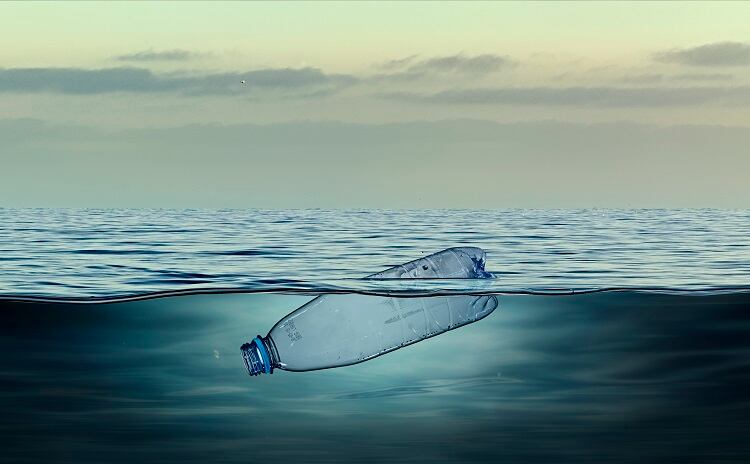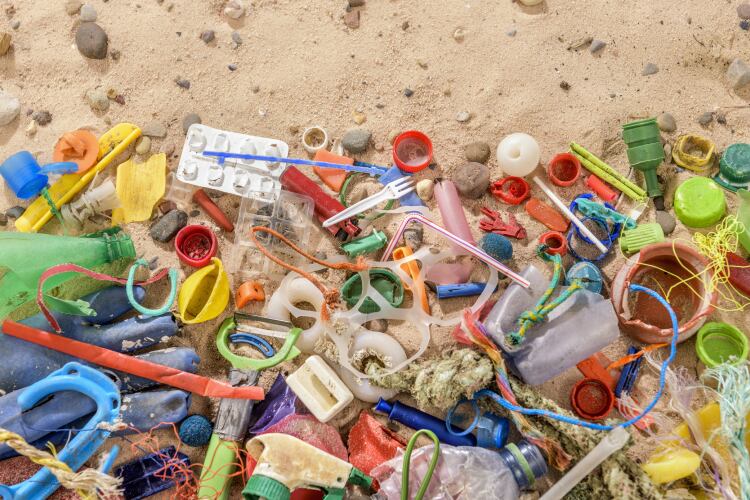Plastic pollution is a global concern. An estimated eight million tonnes of plastic enters the marine environment every year, wreaking havoc on the planet, ocean-life, and even humans.
Just last month, scientists evaluated the internal exposure of plastic particles in human blood for the first time. A study analysing blood samples from 22 individuals discovered 80% had plastic particles in their blood stream, including PET plastic used in drink bottles.
The issue is that plastic serves a purpose. In the food and beverage sector, it keeps food safe and fresh. At the same time, the material is cheap to produce, making large-scale disruption with plastic alternative materials a challenge.
Business-as-usual, however, is not an option. As stakeholders – from FMCGs to governments, NGOs and alt plastic entrepreneurs – work to turn the tide on the global plastics problem, FoodNavigator asks: who is responsible for repairing our polluted system?
Public and private sectors in the spotlight
When contemplating responsibilities in plastic pollution, three stakeholders come to mind: the private sector, governments, and the consumer.
If NGO A Plastic Planet had to select which one had the most responsibility, it would choose governments.
“Working with industry on a daily basis, I am constantly reminded just how difficult it is for industry to wean their products and supply chains off this incredible but toxic and indestructible material,” A Plastic Planet’s Chief Changemaker, Sian Sutherland, explained.
Sutherland co-founded A Plastic Planet in 2016 with the goal of dramatically reducing the use of single-use plastic in packaging.
“Without stronger governance, making plastic reducing a ‘have to’ vs a ‘nice to’ for corporate stakeholders, taxing plastic to create a fairer market for other materials, banning what we all know is the wrong use of plastic, we will never see the scale or speed of action needed to combat the plastic crisis.”
A Plastic Planet is an advocate of Extended Producer Responsibility (EPR) schemes, whereby companies putting packaging on the market are required to pay for its collection, sorting, and recycling after use.
If ‘true’ EPR were introduced, and companies were ‘fully’ responsible for not just the first but the second, third, fourth, ‘forever’ life of the plastic they put on the market, Sutherland believes they would ‘think twice’ about using it at all.
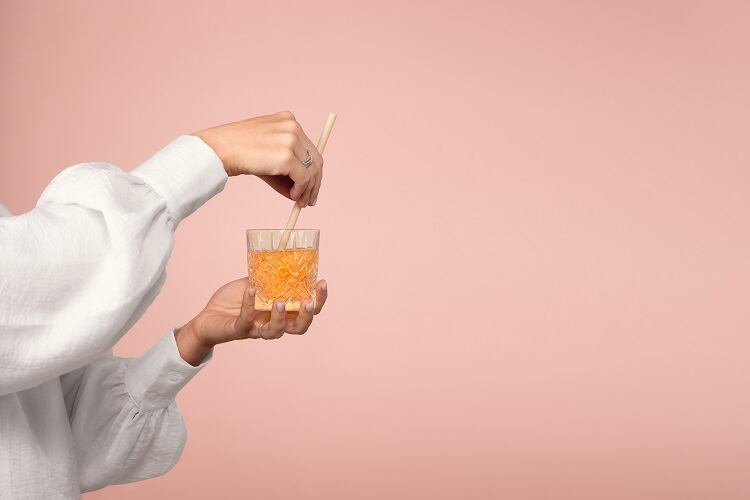
For others, it is more challenging to separate the responsibility. If governments don’t support novel materials to replace plastic, for example, it will be difficult for companies to supply ‘truly’ sustainable products, believes Suvi Haimi, CEO and co-founder of alt plastic start-up Sulapac.
In the food and beverage space, the Finnish company is using a mixture of wood and natural binders to make eco-friendly straws it claims don’t get soggy like paper straws, and industrially compostable cutlery to replace single-use, plastic alternatives.
Everyone is accountable for their own actions, stressed Haimi. “However, if there is no alternative to conventional plastic in the market, it’s hard to be a conscious consumer.”
Regulators in Europe have made an effort to cut the use of single-use plastics, via the EU Single-Use Plastic Directive (SUP), which came into force last year. While developed with good intentions, Haimi suggested the directive missed the mark.
“[The SUP] banned the use of chemically modified polymer in straws, even if they biodegrade without leaving permanent microplastics behind. Tragically, this directive has become an obstacle in our fight against the global plastic pollution.”
Ultimately, if forced to select one stakeholder responsible for turning the tide on plastic waste, Sulapac would say it falls on companies’ shoulders.
“I left academia to save the world from plastic waste. I realised that I could make a big difference as an entrepreneur. Now, as a company, Sulapac not only invests and provides sustainable material solutions, but we have become activists and ambassadors educating consumers, companies, and governments.”
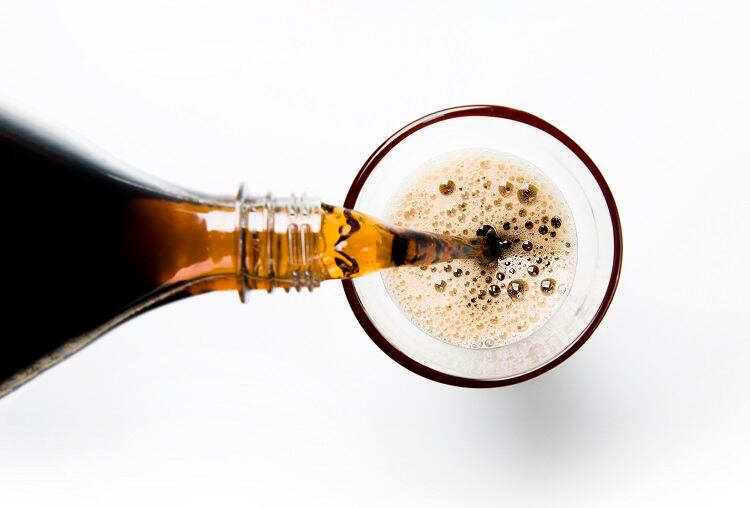
For FMCG Coca-Cola, it is impossible to choose. Collaboration is key, suggested Sam Jones, Head of Climate and Sustainability at Coca-Cola Europacific Partners GB.
“Working collaboratively is key to tackling plastic pollution. Only by working at scale will we achieve real results,” Jones told FoodNavigator.
The plastic carrier bag levy in the UK, for example, is testament to that, we were told. According to the levy, retailers are required to charge consumers for the use of a single-use plastic bag. In England, the charge is a minimum of 10 pence per bag.
“The plastic carrier bag levy…was founded on business action alongside government intervention,” said Jones. “It’s this combined, cross-sector collaboration that’s needed to pioneer more sustainable packaging solutions and shift consumer behaviour.”
Corporate action on the rise
What other improvements have been observed in tackling the plastic pollution problem in recent times?
For Coca-Cola Europacific Partners GB, it has been ‘encouraging’ to see an increase in commitments form food and drink brands globally to tackle plastic pollution, from initiatives designed to reduce the amount of virgin plastic and coloured PET in plastic bottles, to swapping out plastic in packaging, and introducing lighter can formats.
“Industry partnerships have played a big part in this and in helping to drive innovative sustainable packaging solutions. For example, we’ve expanded our industry partnerships over the last few years, with the likes of CuRe Technology – a recycling start-up which seeks to provide a new lease of life for difficult to recycle plastic polyester waste,” said Jones.
Action from businesses is often prompted by changes in consumer behaviour. And Coca-Cola Europacific Partners GB has noted that sustainability is an increasingly key consideration amongst shoppers. According to Deloitte’s 2021 Shifting Sands report, 32% of people are highly engaged with adopting a more sustainable lifestyle.
But as the world moves towards a more circular economy, Jones stressed this is one area where businesses and governments must lead.
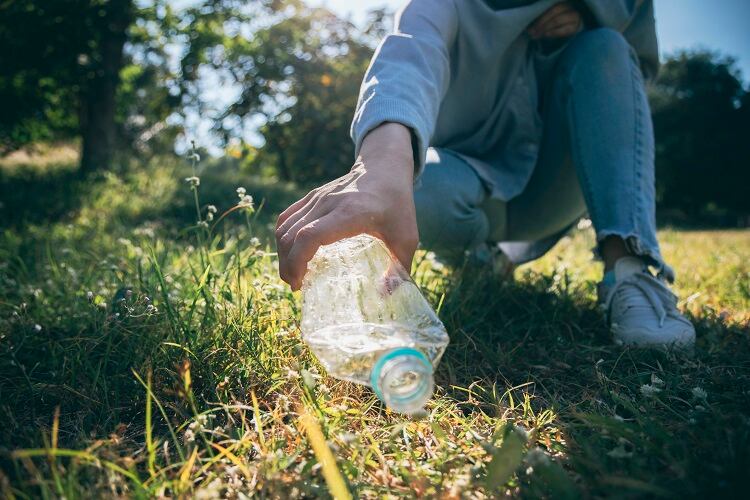
From A Plastic Planet’s perspective, corporate commitments are indeed on the rise. Yet ‘true action is scarce’, said Chief Changemaker Sutherland.
“Plastic is still on track to treble by 2040; recycling has stalled at 9%. We still offshore our guilt by exporting over 60% of our plastic waste from the UK. Seventy percent of our clothing is made from fossil fuel plastic.
“Headlines, pacts and rhetoric do not equal action and we need to pick up the pace. Otherwise, the plan B for Big Oil will prove to be a plastic nightmare for future generations.”
Awareness building, recycling infrastructure not up to scratch
The biggest improvement observed by Sutherland in recent times is in awareness of the problem.
Sulapac’s Haimi similarly noted that awareness and demand are on the rise. Both ‘indie’ and ‘prestige’ brands have started to use the start-up’s alt plastic materials.
While the switch from conventional plastic to Sulapac’s sustainable alternative is ‘easy’, given that the start-up’s materials can be used with existing plastic machinery, the co-founder lamented that recycling infrastructure and legislation is holding the sector back.
Both vary regionally, she stressed. “For instance, in many countries, packaging – even if it’s bio-based and biodegrades without leaving permanent microplastics behind – is not allowed in industrial composting systems.
“Also, as there are no mechanical recycling routes, like there is for PET bottles, to collect and reuse novel materials [are new processes] and it takes time to get enough volume to make the system efficient.”
Sulapac is not staying passive. The start-up is proactively developing its own ‘take back’ system and investigating new recycling routes, we were told.
Further, together with other sustainable material start-ups, Sulapac is lobbying to ensure decisionmakers ‘understand the plastic pollution problem’ and support solutions that tackle it.
“This is currently important in Europe as the collection processing, and regulatory framework for organic recycling infrastructure for various packaging products is in the development phase.”


